CDC and Nigeria Partner to Respond to COVID-19
Summary
- CDC and Nigeria partnered to launch an emergency response shortly after Nigeria reported its first case of COVID-19 in February 2020.
- Work included scaling up laboratories and supporting emergency operations centers to inform public health efforts and policies to help save lives during the pandemic.
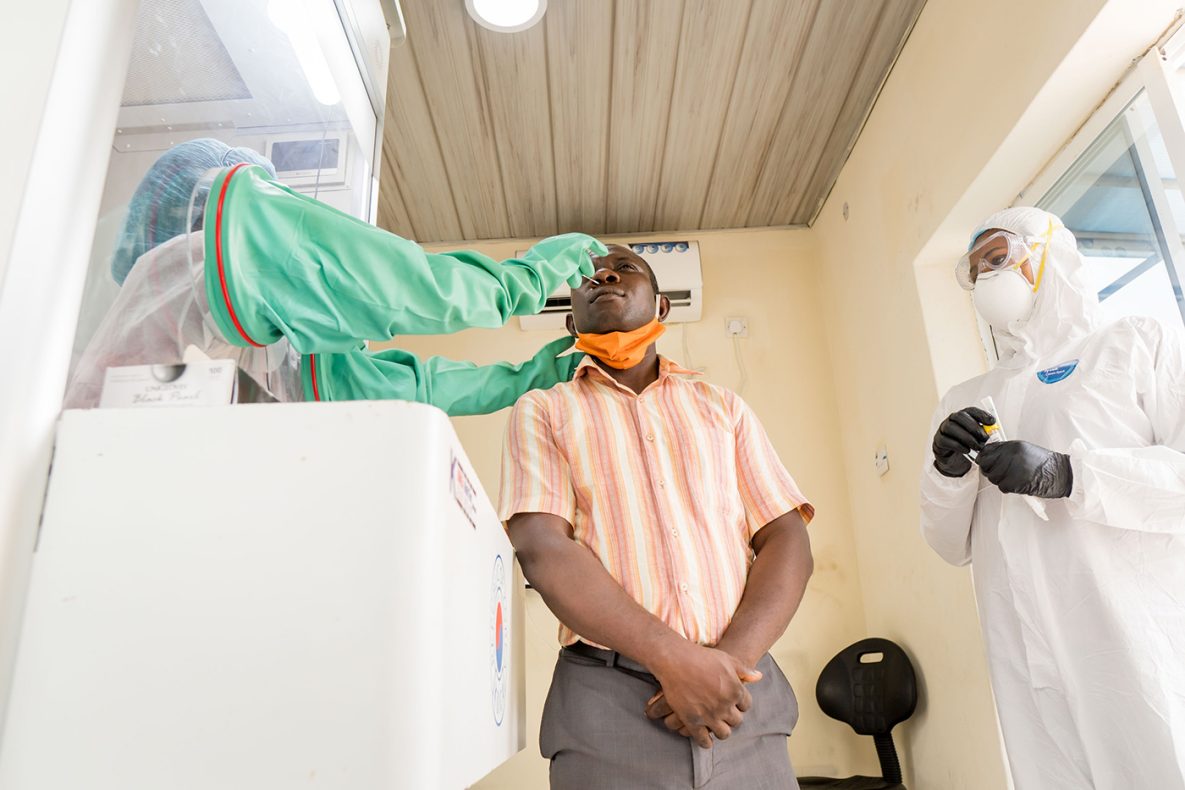
Nigeria reported the country’s first case of COVID-19 on February 27, 2020. Nigeria’s federal government quickly launched a response using existing public health infrastructure. The mission of the public health response was to minimize deaths and slow the spread of the virus. Photo credit: Godwin Oisi/CDC
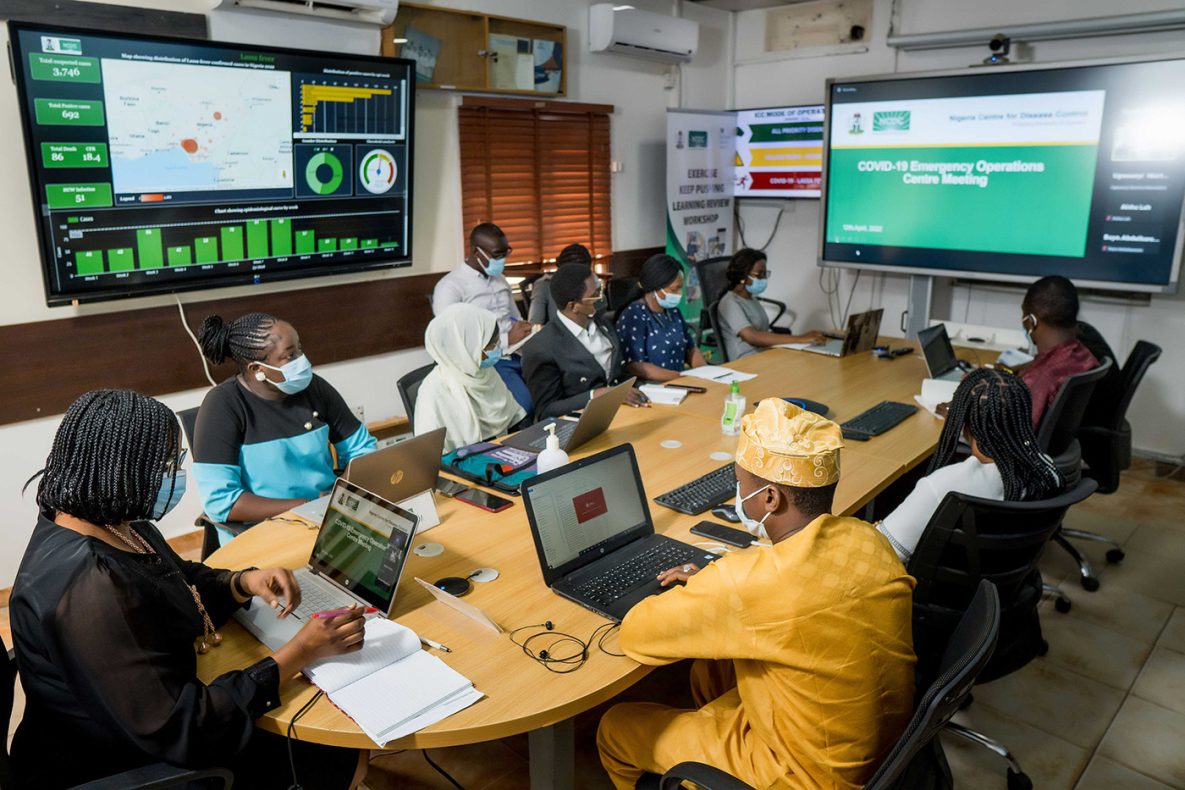
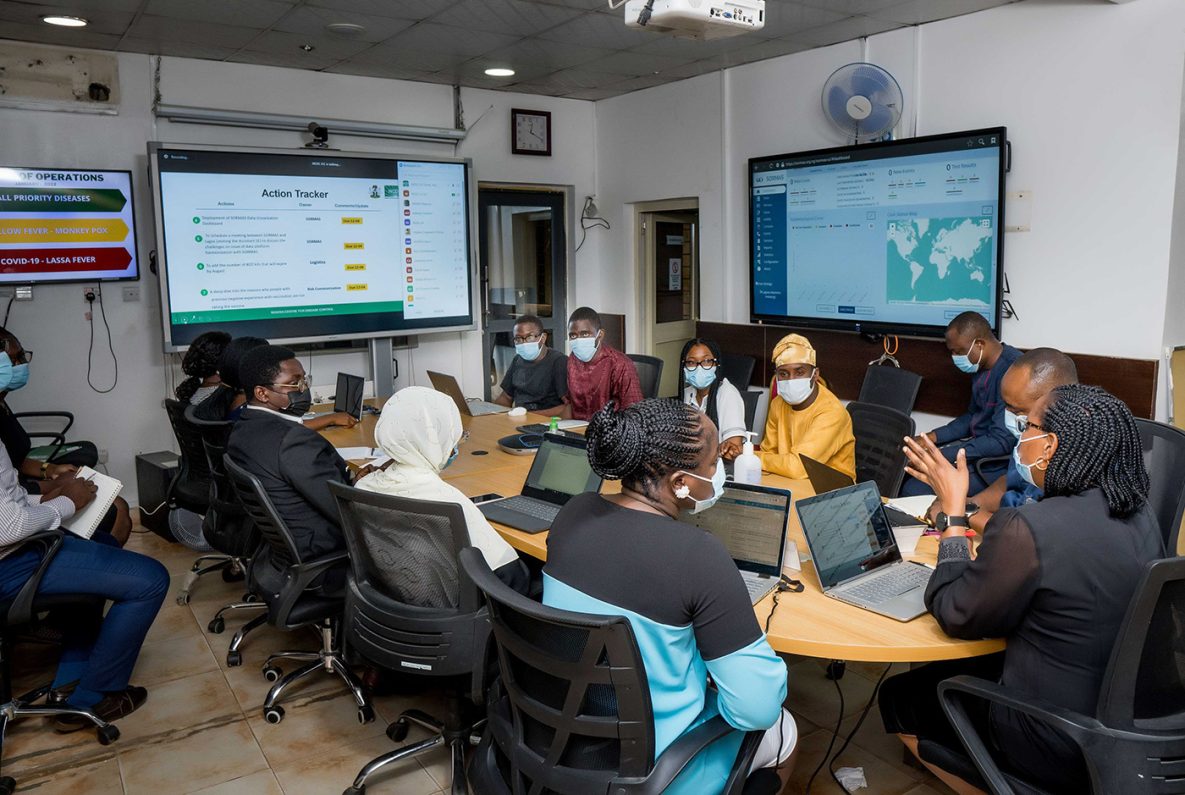
To respond to COVID-19, the government of Nigeria worked with U.S. Centers for Disease Control and Prevention (CDC) and partners to leverage existing resources from CDC- supported HIV and tuberculosis programs. National and local emergency operations centers coordinated case investigations, COVID-19 testing, data analysis, and strategy recommendations to control the pandemic. Photo credit: Godwin Oisi/CDC
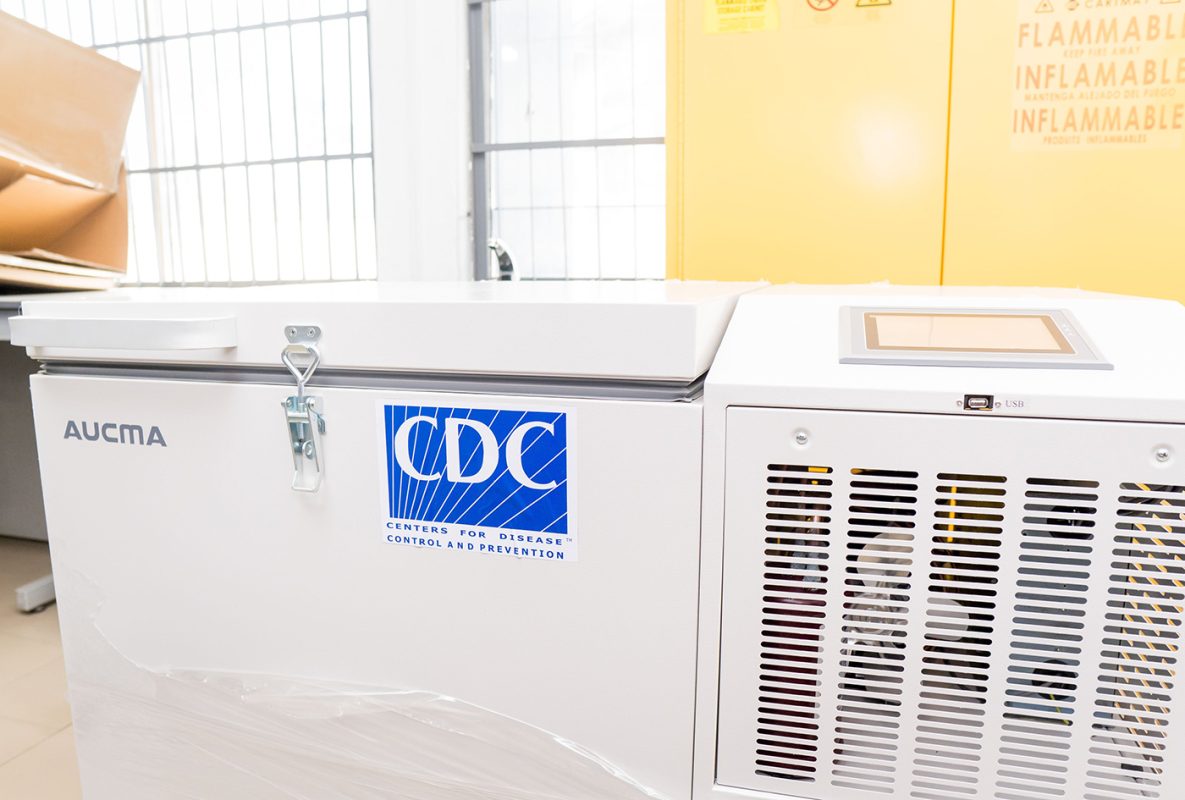
CDC worked with federal and state governments to scale up laboratories in Nigeria for the COVID-19 response. CDC donated this ultra-low temperature freezer to safely store samples. Photo credit: Godwin Oisi/CDC
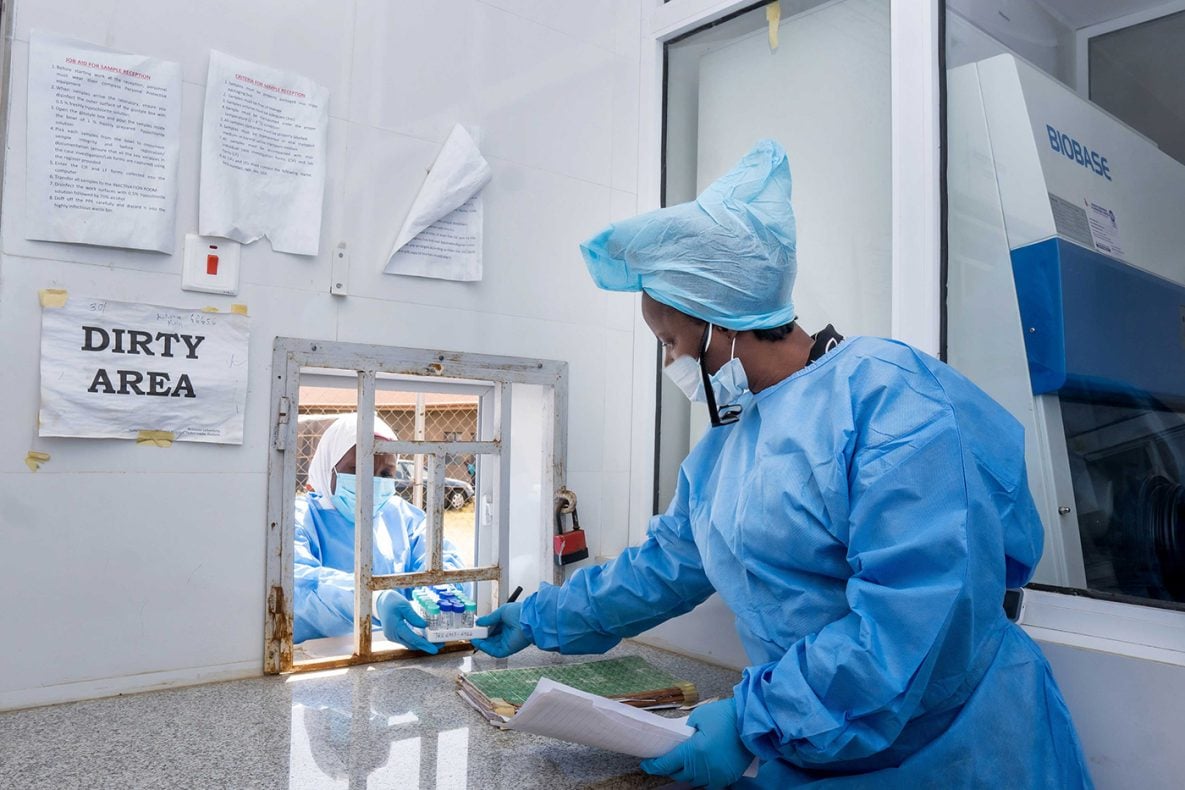
CDC provided funding to establish molecular laboratories in Nigeria. Most molecular tests for the virus that causes COVID-19 use a process called real-time reverse transcriptase quantitative polymerase chain reaction rRT-PCR to detect infection. Laboratories like the Yusuf Dan Tsoho Memorial Hospital, have the capacity to process samples from COVID-19 tests. Photo credit: Godwin Oisi/CDC
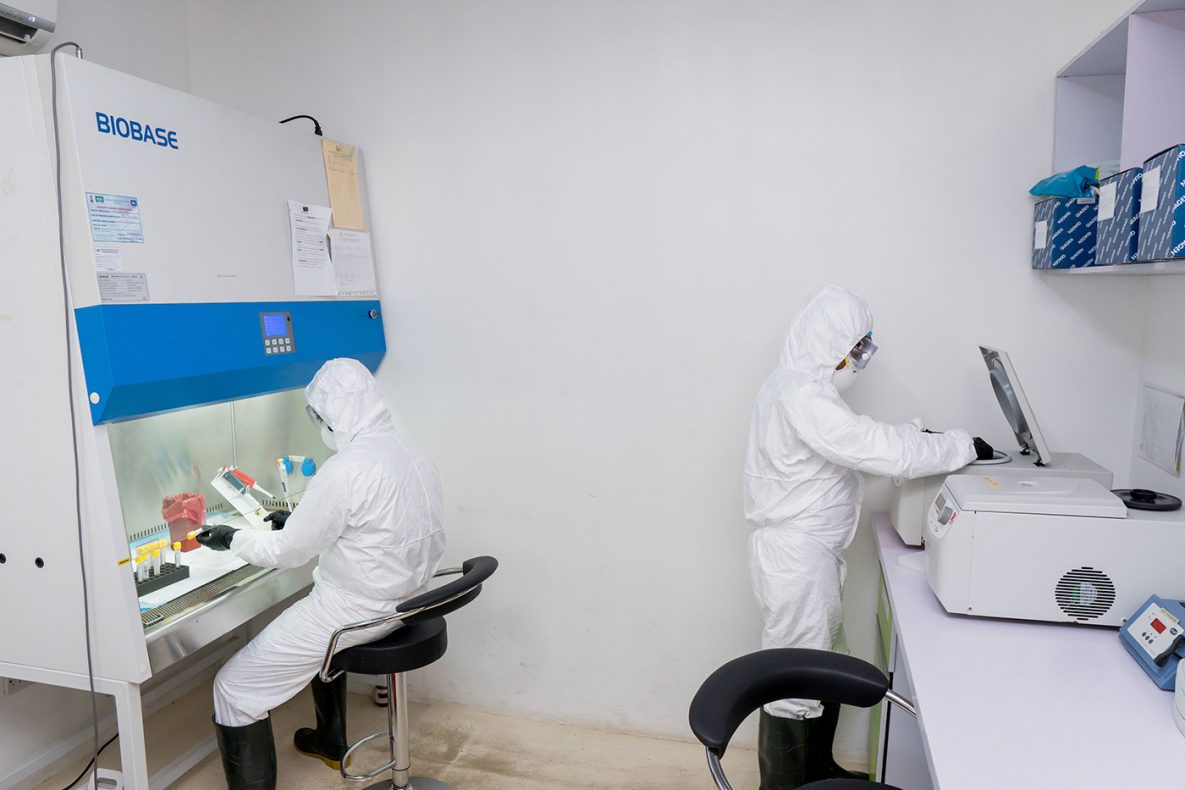
In collaboration with partners, CDC provided laboratory workforce trainings which led to an increase in the volume of COVID-19 samples tested. These trainings, paired with staff’s ability to use molecular laboratory equipment, increased the quality of results. Photo credit: Godwin Oisi/CDC
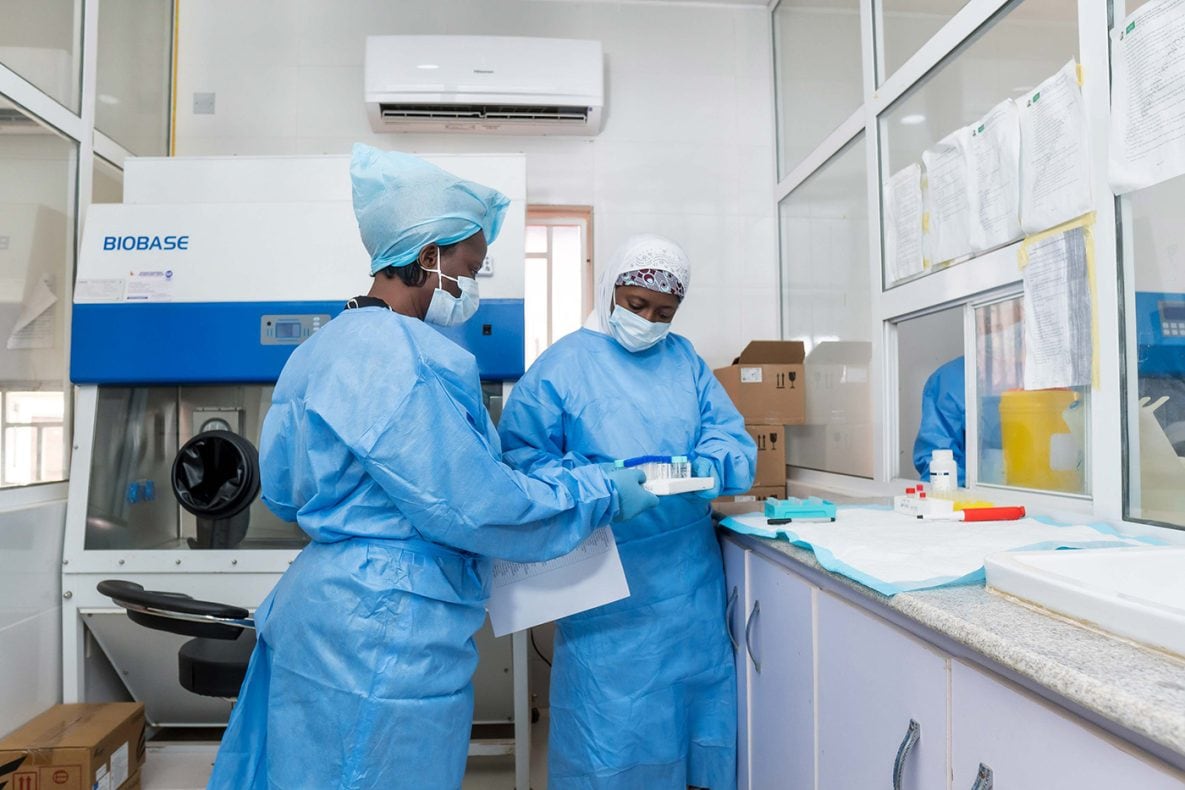
Collaboration between Nigeria and the U.S. improved the COVID-19 pandemic response in the country. CDC investments will help prepare Nigeria for the next public health emergency. Photo credit: Godwin Oisi/CDC